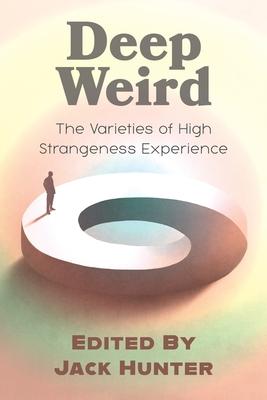This book is about the stranger reaches of extraordinary experience research. In these pages an intrepid cast of writers, investigators and academics explore the complexities of extraordinary experience, and consider why it is that some of the most unusual experiential reports - what we might call 'high strangeness' experiences - come to be neglected, even in what is already a relatively fringe field of inquiry.
The aversion to the most unusual forms of extraordinary experience has resulted in a gulf between the kinds of experiences discussed in the academic parapsychological literature and those experiences discussed by Fortean and popular paranormal researchers, who have more frequently been able to discuss a broader range of extraordinary experiential accounts - from UFO encounters to Bigfoot and fairy sightings, and everything in between.
Notwithstanding this divide, there are significant themes that run throughout the established academic literature on religious and extraordinary experience, the parapsychological literature, and the canon of popular paranormal research. These similarities suggest that even the most unusual experiences, which are often ignored in academic research, contain elements that connect them to other forms of extraordinary experience that are more broadly accepted, such as certain kinds of spiritual, mystical, religious and other paranormal experiences.
This book is an exploration of the possibility that the 'highly strange' might well be a core underlying feature of extraordinary experiences more generally, and that instead of being neglected, 'high strangeness' should be granted greater and renewed scholarly and parapsychological attention.
Includes contributions from Jeffrey J. Kripal, Jack Hunter, Sharon Hewitt Rawlette, Gregory Shushan, Samantha Lee Treasure, Michael Grosso, Zofia Weaver, Alan Murdie, David Luke, Simon Young, Zelia Edgar, Leonardo Breno Martins, Peter M. Rojcewicz, Barbara A. Fisher, Christopher Diltz, Joshua Cutchin, Anthony Peake, Peter Sjstedt-Hughes, Susan Demeter and Rene E. Mazinegiizhigo-kwe Bdard.
